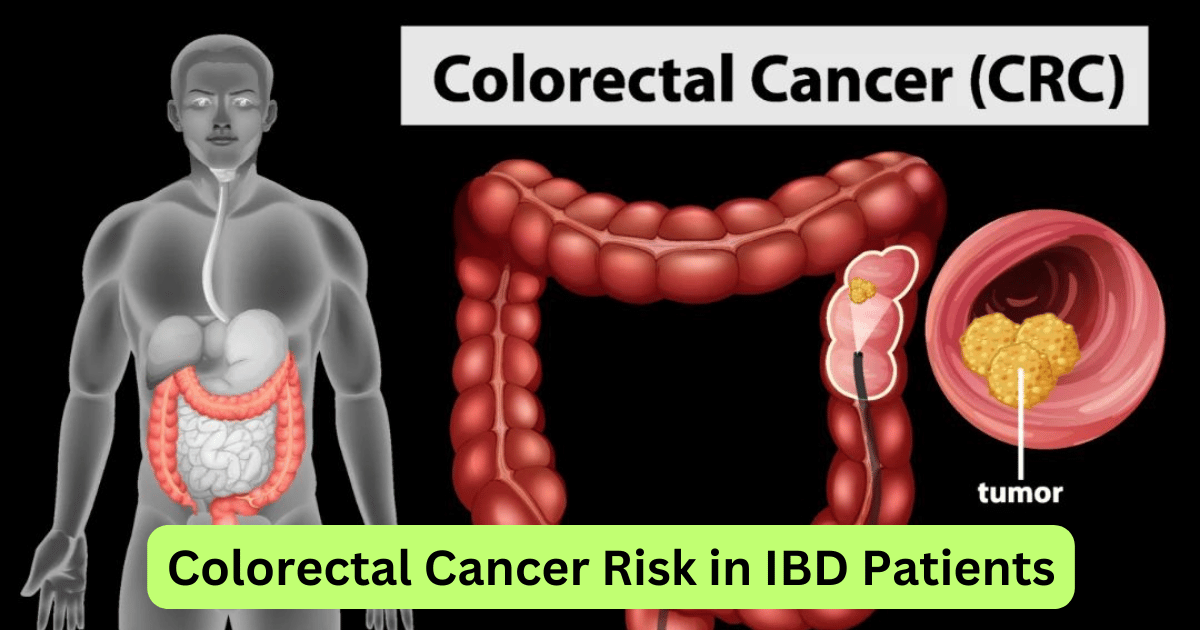Colorectal cancer (CRC) remains one of the most common and deadly cancers worldwide, but recent advancements in medical research are providing hope for earlier detection and improved patient outcomes. A groundbreaking study by The Institute of Cancer Research in London has developed a novel test that could revolutionize the way colorectal cancer is diagnosed in individuals with Inflammatory Bowel Disease (IBD).
The Link Between IBD and Colorectal Cancer
IBD, which includes conditions such as Crohn’s disease and ulcerative colitis, is a chronic inflammation of the digestive tract. Over time, prolonged inflammation in the intestines can lead to an increased risk of colorectal cancer. Patients with IBD are already known to have a higher risk of developing CRC, especially those with long-standing and extensive disease.
The challenge for healthcare professionals has always been how to accurately predict which IBD patients are most likely to develop colorectal cancer, as not all individuals with IBD will go on to develop the disease. Regular screenings, such as colonoscopies, are currently the standard method for monitoring patients, but these procedures are invasive and often come with risks.

The Breakthrough Test
In response to this challenge, researchers at The Institute of Cancer Research in London have developed a new, non-invasive test that can more accurately predict the risk of colorectal cancer in IBD patients. The test works by analyzing genetic biomarkers and other molecular factors that are associated with an increased risk of cancer.
The new test has been hailed as a significant breakthrough in the field of oncology, as it allows for earlier detection without the need for invasive procedures. Early identification of high-risk patients means that they can undergo more intensive monitoring, including regular screenings and preventive treatments, potentially preventing cancer from developing or catching it at an earlier, more treatable stage.
How the Test Works
The test works by detecting specific genetic mutations and markers that have been linked to the development of colorectal cancer. Researchers have identified a set of molecular features that are commonly present in the tissue of IBD patients who go on to develop CRC. By testing blood or stool samples, the new method can identify these markers and provide a risk assessment that helps doctors tailor individual care plans.
The research team is currently refining the test, and clinical trials are ongoing. Early results have been promising, with the test showing high sensitivity and accuracy in predicting which IBD patients are at greatest risk for colorectal cancer.
Implications for IBD Patients
For patients with IBD, the new test represents a game-changing opportunity. By providing a clearer picture of their individual risk, the test will help healthcare providers make more informed decisions about how often they need to monitor their patients and what preventive steps should be taken.
Currently, the standard practice is to monitor patients with IBD through routine colonoscopies, which can be uncomfortable and carry certain risks. The new test offers a less invasive alternative that could spare many patients the need for frequent colonoscopies, while still providing the necessary information to manage their care effectively.
Moreover, the development of the test could pave the way for similar approaches to assessing cancer risk in other conditions. Researchers believe that this technology could eventually be adapted to detect colorectal cancer in the general population or be used to monitor other forms of cancer, providing a more personalized approach to cancer prevention.
Future Outlook
While the test is still undergoing clinical trials, the potential impact of this innovation cannot be overstated. It has the potential to transform the management of colorectal cancer in IBD patients, offering more precise risk assessments and improving patient outcomes. As the research continues and the test becomes widely available, it is expected that more IBD patients will benefit from early detection and tailored preventive measures.
As with any medical breakthrough, further studies and refinement are required before the test becomes a routine part of clinical practice. However, with the promising results seen thus far, it is clear that the future of cancer detection and prevention is heading in an exciting direction.
